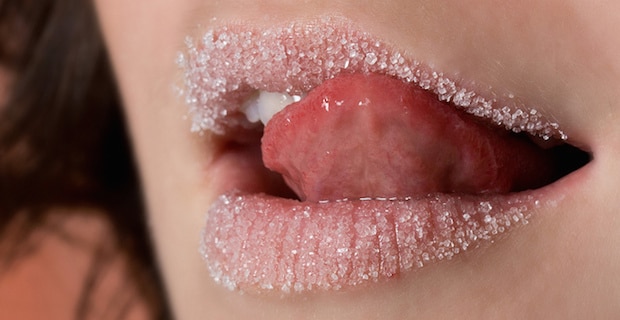
Counterintuitive hardly begins to describe xylitol's powers. The naturally occurring carbohydrate looks and tastes a lot like another white, powdery substance abundant in our diet. But, unlike sugar, this crystalline sweetener has lots of healthy properties-including its ability to even prevent cavities.
A sweetener that prevents cavities? Somebody pinch me!
Read more about the top 8 natural sweeteners
But it's true. You can credit xylitol's fibrous roots-the sweetener is typically derived from corn cobs or tree pulp-and therefore doesn't break down in your body the same way that sugar does. Normal sugars feed unfriendly bacteria colonies in the mouth, which we all know can leave to an acidic state where cavities and other dental issues can set in. But xylitol can actually help your mouth maintain a neutral pH level and keep bacteria from sticking to your teeth. In essence, it stops the acidic state, which can greatly diminish your risk for cavities and gum disease. It's estimated that xylitol can reduce the number of acid-producing bacteria in your mouth by as much as 90 percent!
While we can't re-grow enamel, xylitol may help repair damage to your teeth's delicate protective layer. Xylitol creates an alkaline environment in which the saliva can help to restore minerals to calcium deficient enamel sites.
You can find xylitol in a number of oral care products from toothpaste to mouthwashes. There are even chewing gums and "candies" made from xylitol that you can use after meals. Use it at least 3 times per day, but up to 7 is recommended-the more frequent your mouth is exposed to xyltiol, the more the bacteria is decreased.
Just as xylitol can help reverse damage in our mouths, it can also help us break our sugar habits-one of the leading sources for our growing obesity epidemic. Sugars like cane, beet, and high fructose corn syrup spike blood sugar levels, which can lead to mood swings, sugar crashes and difficulty performing basic cognitive functions. Sugar is also directly linked to obesity, diabetes and hypoglycemia.
Read more about preventing hypoglycemia
Xylitol is as sweet as sugar but contains 75 percent fewer carbohydrates and 40 percent fewer calories. Because of its unique origins, it's absorbed and metabolized more slowly, meaning it's less likely to spike insulin levels. That makes it a healthy choice for diabetics.
Use xylitol in cooking or baking the same as you would use sugar. It works in a 1:1 ratio, making it an easy and healthy substitution.
Image: Jeanny Schmidt










